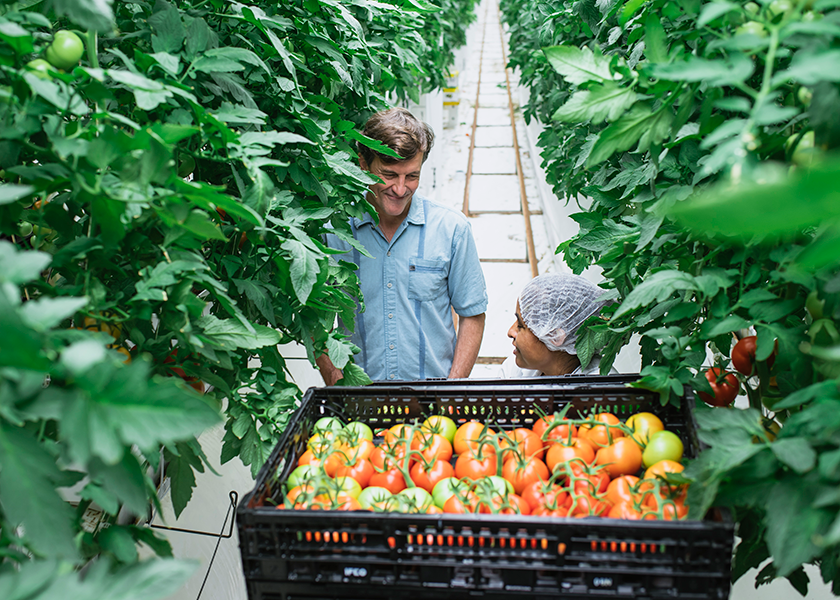‘Ethically sourced produce is having its moment,' says Fair Trade USA's Paul Rice

What do retailers, suppliers and industry stakeholders need to know about the newly launched Produce Program Innovation from Fair Trade USA? The Packer recently connected with Fair Trade USA founder and CEO Paul Rice via email to learn more.
Editor’s note: The following has been edited for length and clarity.
The Packer: Fair Trade USA has launched its Produce Program Innovation. What do you aim to achieve with the relaunch and what updates have been made to the program?

(Photo courtesy of Fair Trade USA)
Paul Rice: The innovations being made to the program aim to scale the impact of fair trade certification for global farmworkers and their communities by providing an industrywide, simplified fee and premium structure, and creating a transparent, equitable program that provides growth for all certificate holders.
What are some key highlights of the Fair Trade Produce Program Innovation, and how does it benefit farmers, farmworkers, the environment, retailers and consumers?
There are numerous benefits to all stakeholders in participating in the Fair Trade Produce Program:
- For farmworkers, the program creates opportunities to identify areas of need for the workforce and direct tools and resources to invest in projects to solve for those needs via the Fair Trade Premium.
- For farms and farm management, the program creates a more engaged and motivated workforce. Fair Trade standards require safe working conditions, sustainable income and more — all of which increases retention, satisfaction and productivity.
- Retailers benefit from more sustainable and resilient supply chains and from having the ability to meet the expectations of the consistently increasing "conscious consumer," which research shows is increasing across nearly all consumer demographics and heavily among millennial and Gen Z shoppers.
- Consumers are given the opportunity to access socially responsible, quality products in the produce aisle that improve workers' lives with every purchase.
- Our Agricultural Production Standard minimizes environmental impacts on natural ecosystems and improves the resiliency of crop production while prohibiting practices like deforestation; limiting pesticide and fertilizer use; and encouraging improvements in the areas of biodiversity, ecosystem health and carbon sequestration.
How does this program help to protect and offer greater stability in the global produce supply chain?
Supply chain sustainability and resilience is the order of the day as we navigate the increasing disruptions brought on by things like climate change, and obviously the pandemic. In addition to agricultural resiliency, fair trade addresses worker retention directly, which is another major benefit to supply chains. Workers who are engaged through fair trade are much more likely to return season-over-season, which greatly benefits productivity.
What are some key challenges faced by growers in developing countries, and how does fair trade seek to overcome them?
Worker retention is a common challenge faced by growers, especially season-over-season. The financial impact of the efficiencies created by high percentages of workers returning is hard to quantify given how many areas of operations benefit. This is a key benefit of the fair trade program and results in not only increased retention, but also increased engagement and productivity.
With regard to produce, does Fair Trade have any recent milestones to share?
Ethically sourced produce is having its moment right now. Sustainability and ESG (Environmental, Social and Governance) topics are part of every sourcing conversation. Sixty-five percent of consumers recognize the Fair Trade Certified label, and 78% of them trust its promise and will pay a 5.1% premium to make a positive impact. As such, we are seeing more and more retailers come to the table with an eye toward the entire produce section, where in the past, conversations have been much more focused on individual produce items. We are looking forward to some exciting announcements about commitments in the coming weeks and months.
Who are some of the major players on the retail and supply side in Fair Trade-certified produce, and how are they making a difference?
Both Whole Foods Market and Costco are anchor partners in fair trade produce and have been instrumental in the program’s success. They each have strong commitments to ethically sourced produce. Walmart has also been a significant partner in growing our impact, and we are excited about the momentum that we've continued to build with partners like The Fresh Market, Sprouts and others who are building meaningful impact through their commitments.
On the supplier side, we also have legacy partners who have helped us scale the program. Partners like Driscoll's and Dole, Divine Flavor and Wholesum have helped us build a strong case for investing in fair trade, which now includes companies with impressive commitments to sustainability like C.H. Robinson, NatureSweet and Mastronardi.
All of those partners are making a huge difference in the lives of farmworkers and in the ability for consumers to shop their values. The "conscious consumer" demographic continues to grow and expand, so giving those consumers the opportunity to have an impact is deeply meaningful.
For farmworkers, we learn of new impact on an almost daily basis. Premium projects on the ground that invest in health care, vision, scholarships and infrastructure have a generational impact while also contributing to lower risk in supply chains as we’ve discussed.
Related: More news on social responsibility







